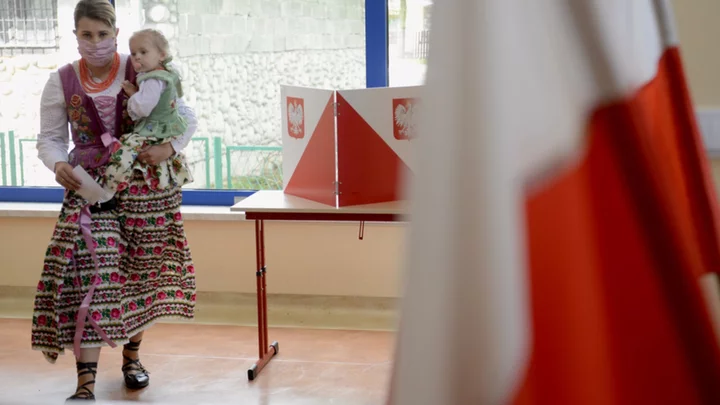
Polish elections: When are they and why is Europe watching closely?
Poland's upcoming elections have been called the most important since the fall of communism in 1989.
2023-10-08 10:55
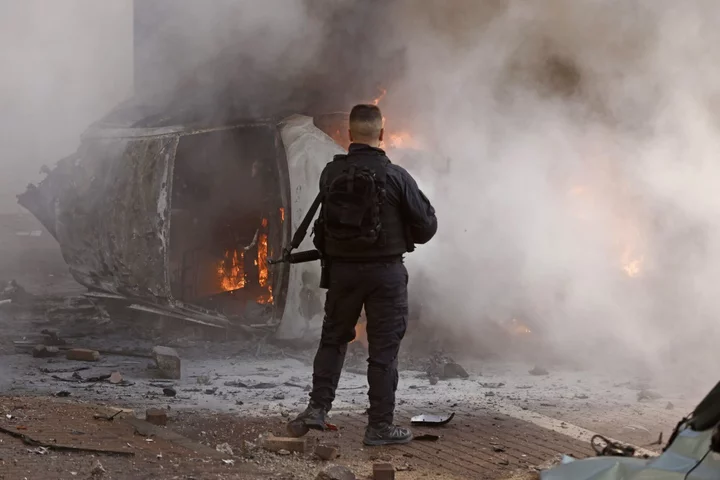
Hamas Attack Prompts Blame Around Israeli Intelligence
Saturday’s surprise attack on Israel by the Palestinian group Hamas may represent one of the biggest failures by
2023-10-08 08:57
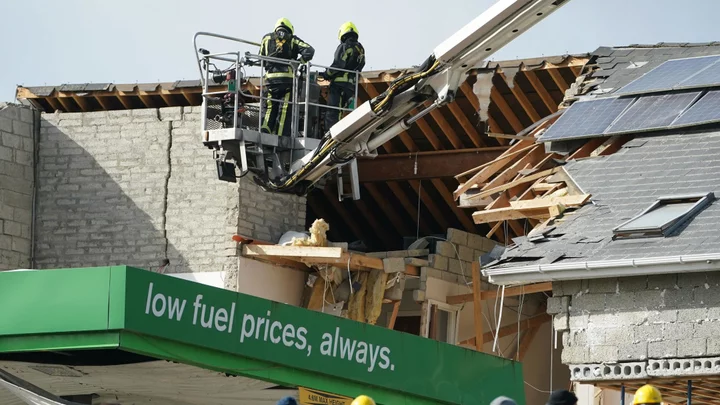
'She travelled the world but died a mile from home'
Devastated families speak out as Creeslough marks one year since an explosion that killed 10 people.
2023-10-07 23:17
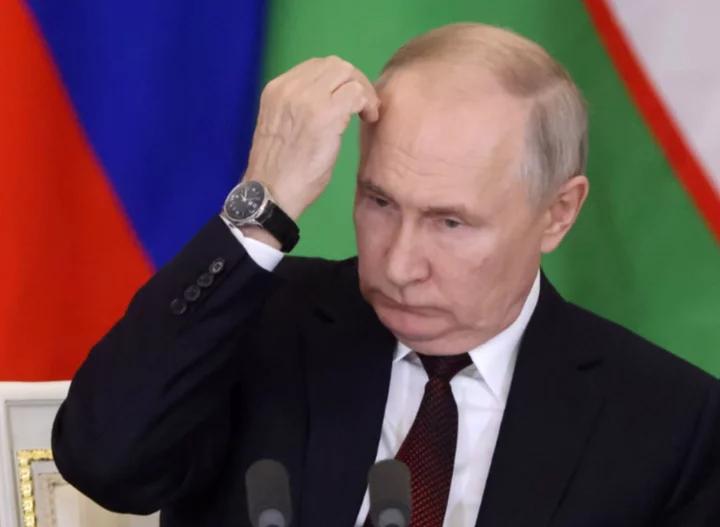
Ukraine-Russia war – live: Putin official killed in Kherson car bomb as Kyiv gains ground near Bakhmut
An official of Vladimir Putin’s party has been killed in a car explosion in the Ukaine’s Kherson on Saturday, the regional governor has said. Vladimir Malov, executive secretary of of Russia‘s governing United Russia party in Nova Kakhovka, died in hospital, Vladimir Saldo said in a post on his Telegram channel. He said it had been a “terrorist attack”, meaning one orchestrated by Ukraine. “The law enforcement officers will do everything necessary to punish the perpetrators of the crime,” Mr Saldo posted on Telegram. There was no immediate comment from Kyiv. On the battlefield, Ukrainian forces have gained ground near Bakhmut as Volodymyr Zelensky condemned Russia’s strike on a funeral service “inhuman” and “a completely deliberate act of terrorism”. According to the latest report from The Institute for the Study of War (ISW), Ukrainian military sources reported a successful offensive south of Bakhmut near Andriivka and advanced in western Zaporizhia Oblast on 6 October. It comes after a village where a Russian missile killed at least 52 civilians in one of the deadliest attacks in the war had no military targets, according to Ukraine’s defence minister. Read More Russian missile strike kills more than 50 Ukrainians gathered for wake – in deadliest such attack in months Ukraine village reels after deadly missile strike: ‘Everything was burning’ Russia plans to reverse global nuclear test ban, announces envoy
2023-10-07 22:55

Charting the Global Economy: Strong Data Send Bond Yields Surging
US Treasury yields surged this week, sparking a broader selloff in global bond markets as investors brace for
2023-10-07 17:57
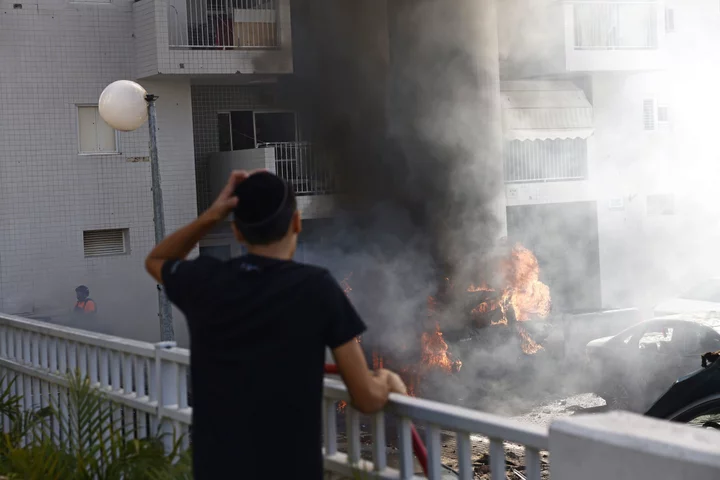
Israel Latest: Netanyahu in Video Message Says Nation ‘At War’
Israel declared a rare state of alert for war on Saturday after militants fired an estimated 2,200 missiles
2023-10-07 17:52
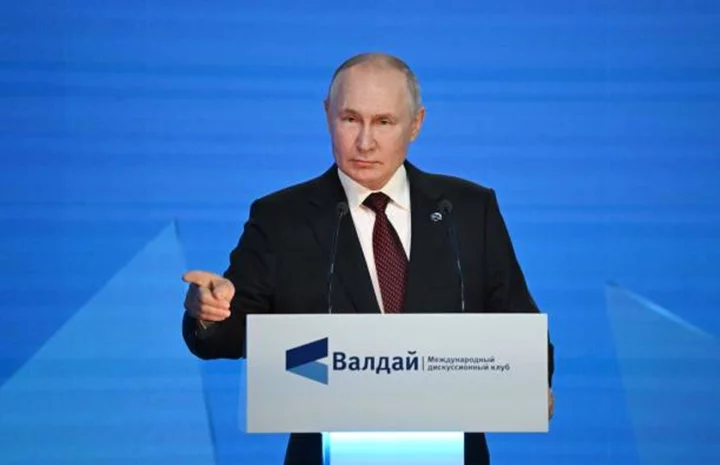
Russia plans to reverse global nuclear test ban, announces envoy
Russia plans to withdraw its ratification of the 1996 treaty that prohibited the testing of nuclear weapons, the country’s envoy to the Comprehensive Nuclear-Test-Ban Treaty Organisation [CTBTO] said on Friday. “Disturbed” by the move, the US denounced it as endangering "the global norm" against nuclear test blasts. The announcement by Mikhail Ulyanov on Friday added new fuel to tensions between Russia and the United States over Moscow’s invasion of Ukraine and arms control disputes between the world’s largest nuclear weapons powers. Mr Ulyanov, Moscow’s envoy to the CTBTO, said on X, the social media platform formerly known as Twitter, that "#Russia plans to revoke ratification (which took place in the year 2000) of the Comprehensive Nuclear-Test-Ban Treaty." "The aim is to be on equal footing with the #US who signed the Treaty, but didn’t ratify it. Revocation doesn’t mean the intention to resume nuclear tests," he said. The CTBT has been signed by 187 countries and ratified by 178 but cannot go into force until eight specific holdouts have signed and ratified it. China, Egypt, Iran, and Israel have signed but not ratified it. North Korea, India and Pakistan have not signed. While the United States signed but did not ratify the treaty, it has observed a moratorium on nuclear weapon test explosions since 1992 that it says it has no plans to abandon. "We are disturbed by the comments of Ambassador Ulyanov in Vienna today," a US State Department spokesperson said in a statement. "A move like this by any State Party needlessly endangers the global norm against nuclear explosive testing." It said that Russia should not be “wielding arms control and irresponsible nuclear rhetoric in a failing attempt to coerce other states”, in an apparent reference to Moscow’s efforts to pressurise countries into withdrawing their arms support and aid to Ukraine. Mr Ulyanov’s statement came a day after Russian president Vladimir Putin said that Moscow could look at revoking its ratification of the CTBT. He argued that Russia could mirror the stand taken by Washington. “Theoretically, we may revoke the ratification,” he said, after Moscow successfully tested an experimental nuclear-powered cruise missile. Moscow last tested a nuclear weapon in 1990, before the collapse of the Soviet Union a year later. It ratified the global test ban in 2000. Many Russian hawks have spoken in favour of resuming the tests, since its invasion of Ukraine, in February last year. Mr Putin said that while some experts have talked about the need to conduct nuclear tests, he hasn’t yet formed an opinion on the issue. “I’m not ready to say yet whether it’s necessary for us to conduct tests or not,” he said. "It would be concerning and deeply unfortunate if any State Signatory were to reconsider its ratification of the CTBT," Robert Floyd, the executive director of the CTBTO, which monitors compliance with the pact, said in a statement. "The Russian Federation has consistently reaffirmed its strong support of the CTBT since its very inception, helping to negotiate the Treaty in the Conference on Disarmament, signing the day it opened for signature on 24 September 1996, and ratifying it in June 2000," he added. Russian withdrawal could be a blow to the treaty since, like the eight key holdout countries, it is one of the "Annex 2" countries that must all ratify the treaty it for it to enter into force. "I look forward to continued close cooperation with the Russian Federation and all States that have committed to creating a world free of nuclear testing," Mr Floyd said. Read More Ukraine-Russia war – live: Putin’s ‘inhuman’ missile strike hit area with no military targets, says Kyiv Ukraine village reels after deadly missile strike: ‘Everything was burning’ ‘You can still smell the blood’: Inside the village where more than 50 were killed by a Russian missile The Body in the Woods | An Independent TV Original Documentary The harrowing discovery at centre of The Independent’s new documentary
2023-10-07 14:47
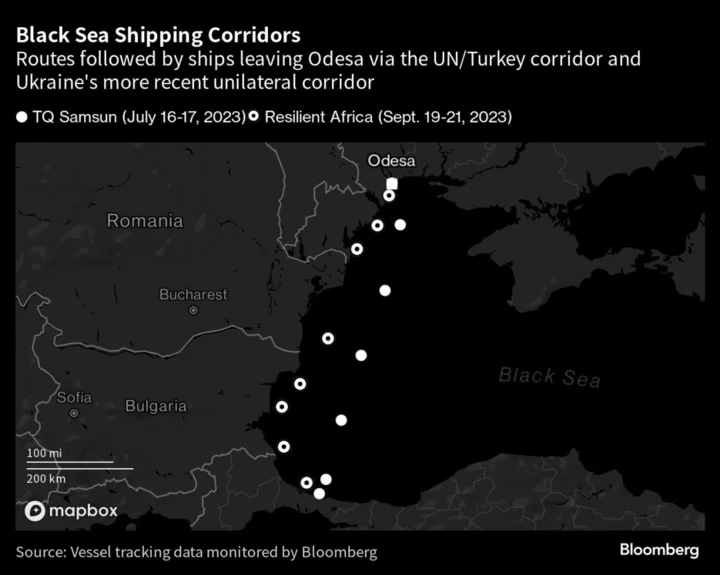
Russian Attacks Are Edging Closer and Closer to NATO Territory
The North Atlantic Treaty Organization has an increasingly tricky problem in its backyard: how to confront the spillover
2023-10-07 14:24
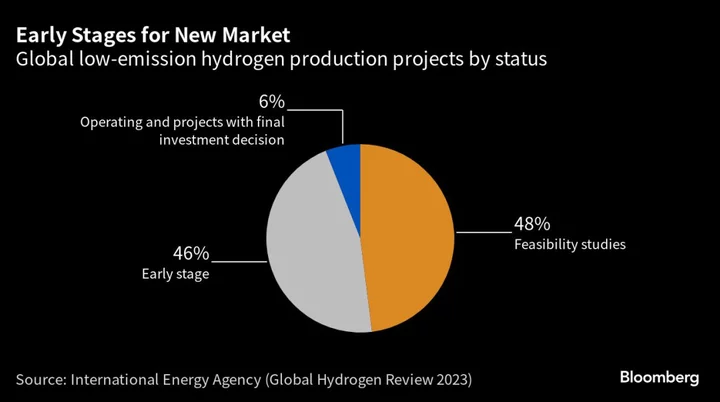
UK Risks Losing Out to Europe in Hydrogen Energy Race
In 2021, the UK set out a bold ambition to become a ‘global leader on hydrogen’ by 2030.
2023-10-07 13:45
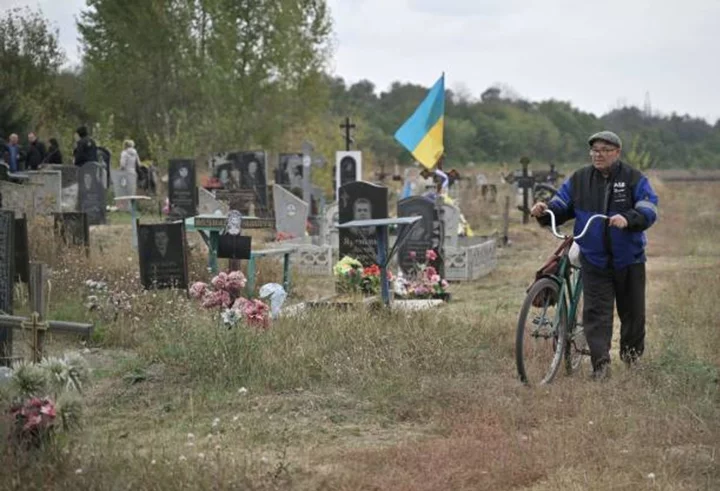
Ukraine village reels after deadly missile strike: ‘Everything was burning’
Every family in Ukraine’s northeastern village of Hroza was affected after a missile strike killed 52 people on Thursday, obliterating a sixth of the local population, say locals. However, it may take several months before DNA analysis can identify the majority of the remains. For now, the names are scrawled on cardboard or white plastic squares, and strings mark the boundaries of the fresh graves. Dozens of people gathered in the local cafe for a meal to honour Andrii Kozyr, a soldier who died in the war against Russia, with almost every household in the village sending someone to mourn the native son. When the gathering was struck by a precision missile that Ukrainian officials said was fired by Russia, entire families perished in an instant. In all, 52 people died out of a population of 300, while only six people in the cafe survived, with villagers suspecting that a local may have tipped off Russian forces. “From every household, there were people present,” said interior minister Ihor Klymenko. “My neighbours, my neighbours,” Valentina Kozeinko, a 73-year-old retiree, wailed in agony. “A lot of our people died there,” she told CNN. “It was a powerful strike, very powerful, I came out and everything was burning,” she recalled. “It was so scary … The corpses were burned and there was blood everywhere.” Among the dead was Valeriy Kozyr’s daughter, Olya, who was survived by her three children. Mr Kozyr’s son-in-law died in the attack as well. "It would have been better if I had died," he said quietly as he wept. "Oh God, you cannot punish me like this. To leave the father and take the children!" Wiping tears from his face, the 61-year-old explained that he must now work out how to care for his three grand-children aged 10, 15 and 17. Mr Kozyr wants to bury Olya and her husband side-by-side in a single grave. Like much of the region east of the regional capital of Kharkiv, Hroza was under Russian occupation for six months, until September 2022, when Ukrainian troops liberated the area. Locals say it is strictly a civilian area. There has never been any military base, whether Russian or Ukrainian. They said only civilians or family came to the funeral and wake, and residents were the only people who would have known where and when it was taking place. Moscow denies targeting civilians in its full-scale invasion, a position it repeated on Friday in response to the Hroza strike. Thousands have been killed in a bombing campaign that has hit apartment blocks and restaurants as well as power stations, bridges and grain silos. Ukrainian officials said the weapon was a precision Iskander-style missile, which is said to have an accuracy of five to seven meters. Dmytro Chubenko, spokesperson for the regional prosecutor, said investigators are looking into whether someone from the area transmitted the cafe’s coordinates to the Russians — a betrayal to everyone now grieving in Hroza. Many share that suspicion, describing a strike timed to kill the maximum number of people. The date of the funeral was set a few weeks ago, and the time was shared throughout the village late last week. Not all of the victims have been identified. Regional police investigator Serhiy Bolvinov told reporters late on Thursday that authorities would have to use DNA to identify some of the victims because their remains were beyond recognition. "Corpses lay there in that yard, and nobody could identify them," said Valentyna Kozienko, 73, speaking near her home close to the site. "Half the village is gone, families are gone," said Kozyr, standing beside his wife as she wept. "All the time they miss. Well, this time, they hit. "Now I’ll have to cross out half my phone book." Additional reporting from the wires Read More Ukraine-Russia war – live: Putin’s ‘inhuman’ missile strike hit area with no military targets, says Kyiv Precision missile strike on cafe hosting soldier's wake decimates Ukrainian village ‘You can still smell the blood’: Inside the village where more than 50 were killed by a Russian missile
2023-10-07 12:45
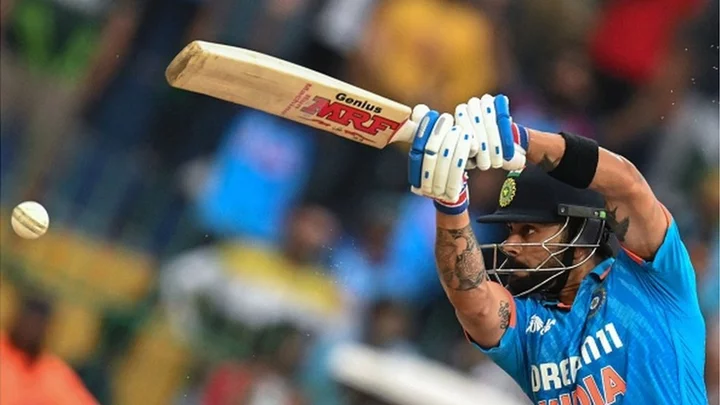
Can India cricketers win World Cup for a billion fans?
They are playing at home which could be an advantage but also a pressure point, writes Suresh Menon.
2023-10-07 05:15
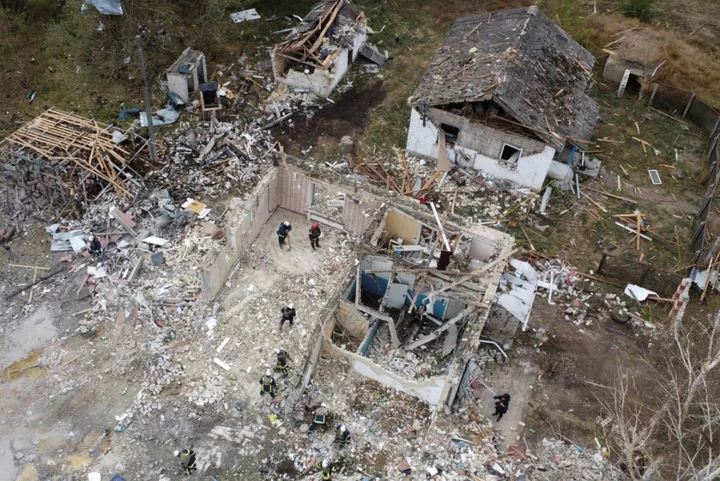
‘You can still smell the blood’: Inside the village where more than 50 were killed by a Russian missile
Many woke up dazed in the Ukraine’s Hroza on Friday – with the village in the northeast of the country having lost a fifth of residents in the devastation caused by a Russian missile strike the previous day. Ihor Klymenko, Minister of Internal Affairs of Ukraine has said the village only had 330 residents – and that at least 52 had been killed in the assault. He added that every family had at least one person they knew at the wake for Ukrainian soldier Andrii Kozyr inside the cafe (and grocery shop) that was wrecked by the missile. That wake followed a funeral that had been an attempt to rebury a father who had been killed in Russian-occupied territory last year. Now candles mark the spot where the lives of those mourners were lost. Residents have said that the cafe, Hrozivske, had been closed for much of the time since Russia’s invasion began in February last year, and that the wake had marked one of the first major events of its reopening. The strike that followed is one of the deadliest of the war. Alina, 23 – who only wanted to be known by her first name – moved to the village after marrying a local three years ago. Alina says herself and her husband were due to be at the memorial, but their car engine faltered and they couldn’t make it in time. “We were meant to be there. We were meant to be dead,” she says. Now all she feels is anger at the missile strike. “They were just normal people living a normal life,” she says of those who died. “Most of them were farmers, working with wheat and barley.” The village, in the Kharkiv region, was founded in 1922, and its name translates as “thunderstorm”. It was first occupied by Russian forces in February 2022 and was liberated by Ukrainian forces that September. Alina says that when the village was occupied by Moscow’s forces, mostly older people stayed behind as the younger residents fled. When the village was due to celebrate its centennial anniversary last year, she says that residents spent the time hiding in their cellars. “We felt enormous joy when Russian forces left,” she continues. “It was great to be Ukraine again. [Now] I have no words for what’s happened.” Hroza had 501 inhabitants before the invasion according to local journalist Iryna Antoniuk, who is a correspondent with the My-Ukraina [We Are Ukraine] TV Channel. She says that half of the 300 or so who remained in the village had been in attendance at the wake. In a morning visit to the village, less than 24 hours after the attack Ms Antoniuk says “you can still smell the blood” among the wreckage. “It’s a tiny little village,” says Ms Antoniuk. “This building that was hit, was in the very centre, so it’s so noticeable. Immediately, when you enter the village, you notice it. People have started bringing flowers now to pay tribute.” Workers at the local cemetery cut down trees and mowed grass to prepare graves for those killed. They are to be buried not far from the soldier Kozyr, whose wake they were attending. Residents also gathered to mourn in groups in the village centre, which was largely deserted except for people picking up humanitarian aid, including materials to repair their damaged houses. Dr Robert Dale, Senior Lecturer of Russian History at Newcastle University says: “Hroza... has seen much bombardment during the Russian offensive. “This is a location that as a borderland area has long been a site of conflict, and at the sharp end of wars. The Kharkiv region suffered very badly in the ‘Russian’ Civil War, the Holodomor, and the area changed hands repeatedly in the Second World War... Perhaps one reason for why Hroza seems to have so little recorded history is that these rural regions have been ravaged throughout the twentieth century.” He added: “The Kharkiv region’s proximity to the Russian border means that it has born much of the brunt of... this conflict.” The Hroza victims made up most of the 54 civilians killed in the country over the previous 24 hours, Ukraine's presidential office said Friday. The UN human rights chief, Volker Turk, said he was "shocked and saddened" by the attack. In a sign of the continuing assault Ukrainians face in the Kharkiv region. On Friday morning, Ukrainian officials said another two Russian missiles had killed a 10-year-old boy and his grandmother in the city of Kharkiv itself. Emergency crews pulled the boy's body from the rubble of a building. He was wearing pyjamas with a Spider Man design. The strike also killed the boy's grandmother and wounded an 11-month-old child, the interior minister Klymenko said. The regional governor, Oleh Syniehubov, said that in all, 30 people were wounded. Rescue operations were continuing. Officials said preliminary information indicated that the Kremlin's forces used two Iskander missiles in the attack, the same as in the strike on Hroza. The attack may have only lasted seconds, but Alina says she will feel the hurt for a long time. “I knew every single person that has died. They were our buddies, our friends, our family and neighbours,” she says. Read More Nobel Peace Prize awarded to jailed Iranian women’s rights ‘freedom fighter’ Narges Mohammadi Ukraine-Russia war – live: Latest missile strike by Putin’s forces kills boy and his grandmother in Kharkiv Berlin exists on the border of freedom and chaos – it’s why I keep coming back
2023-10-07 01:46
